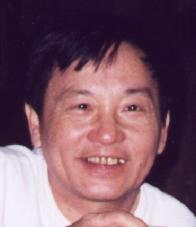 phụ trách Tạo Dựng Nước Mỹ Lucy Carlyle, trên TLS đọc lê thi diem thúy Bản dịch tiếng Việt Trần Hữu Dũng đọc lê thi diem thuý |
Making Lucy
Carlyle lê
thi diem thúy The
Gangster We Are All Looking For.
Like the author, the narrator is a young
girl taken
out of Through
the eyes of her younger self, the child refugee, thúy translates the
details of
Californian life into mysteries and wonders. We stood in front of Ken's admiring the
many shining
pairs of dress-up shoes, each positioned at such an angle as to suggest
the
wearer had floated out of them, while the shoes, too heavy to follow,
had to
stay behind. By means of such imaginative
misinterpretation, Reflecting the alien nature of both the
country and
its new inhabitants, the narrator conveys not only a foreigner's
interpretation
of Partly, we understand that this failure in
understanding is due to the misapprehension inherent in love, to the
mysteriousness of childhood. But it also appeals to spring from the
loss of
memory caused by the family’s transplantation. Unexplained reference a
lost
brother suggest a disconnection from history, while the confused
reactions of
her parents to the realities of American life convey a disengagement
with the
present moment. In possession of neither past nor present,
the focus
of the narrative between both, just as the central character floats
between the
world of home and the outside world. Meanwhile, a disturbing sense of
unsatisfied, unlocated blame drifts around the household, and in
particular the
narrator's father, prompting the daughter to resolve that one day she
will
become “the gangster we are all looking for-, swallowing blame and
restoring
the family to emotional dry land.Thúy explores these watery
dislocations in
language as delicately as a butterfly. A perverse sense of beauty
informs her
narrative, bestowing grace on acts of violence and passion and
suggesting the
charmed perception of a dreamer. She provides some magnificent
metaphors. Eyes
are “empty of expression, like two pieces of volcanic rock that have
been
drowned in a river to cool"; pebbles fall on her mother like “warm
kisses
on the curve of her back”; a bruise unfurls like a "blossom". Through her exquisite, transformative
sensibility, lê
thi diem thúy creates the possibility of understanding unfamiliarity as
both
dangerous and wonderful. She suggests that this double-edged sense of
strangeness is an inevitable component not only of emigration, but also
of the
most intimate human relationships. And, while anatomizing the traumatic
discontinuities which scar her family's story she creates the
possibility of
eventual return to a lost past through careful remembering. TLS số
|